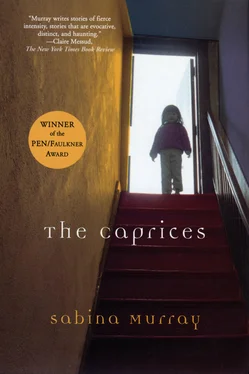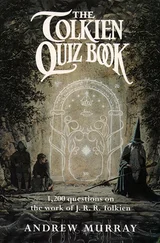7. Lolo Richard and Fernando
My grandfather and Fernando, my uncle, lived out their lives in Fort Santiago. Who knows what happened? The records are murky. In fact, we only knew that they were in there because someone saw them. How could anyone see them? So many collaborators in those days of hopelessness. Our city, their war. Survival is easy to justify. My Aunt Elena was then two. She’d made it out to the province where the rest of her siblings were crashing around, wondering when they’d have to go back to school. The story goes something like this: Everyone was in the dining room eating and Elena decided that she needed to pee, although her mother did not have time to attend to her. She got left in the bathroom for quite a while. When my grandmother finally got around to getting her cleaned up, Elena informed her that a man had come to visit her. He just stood there smiling and Elena was not afraid, even though she didn’t know who he was. He was wearing khaki pants and a jacket made out of similar stuff. He looked like her brother Jorge, only older, a lot older. He had just kind of disappeared and not through the doorway. That’s how my family found out that my grandfather, Lolo Richard, was dead. There is no way of knowing how much time he and his son were incarcerated.
I imagine my grandfather with his arm around his son, holding him close, while young Fernando’s heavy eyes looked to him for an answer. “The general said he was coming back” is all that he can say. He wonders if his wife is all right, whether her obstinacy has worked for or against her. He wonders if his father is still alive and prays that the other six children have made it out to the province.
8. Uncle Lou
Uncle Lou and Uncle Jorge escaped Manila in a truckful of Japanese soldiers headed for Cabanatuan. At first they were confused by the generosity, but after a soldier insisted that they were to stand at the back of the truck and stay visible, they saw that they had earned the ride. Two mestizo teenagers were more than a good-luck charm against guerrilla attacks and American snipers. Cabanatuan was where the Americans who weren’t at Santo Tomas were imprisoned. Gapan, the town where the family kept the provincial home, was less than ten miles away.
My Uncle Lou worships MacArthur. My Uncle Lou thinks he’s a hero. Uncle Lou left the Philippines for the land of MacArthur shortly after the war. Granddaddy took him on a ship away from his country, just as he’d taken him from my grandparents’ house when he was a baby, determined to make him as American as he had once been. Granddaddy returned to Manila. Uncle Lou never did. He joined the all-new American air force. He married his blond, blue-eyed sweetheart. He joined the John Birch Society. He ran for congressman on the Libertarian ticket. He’s so American that I — who am half American — cannot comprehend him. “MacArthur,” says Uncle Lou, “defines glory.” As far as I’m concerned, “glory” is “gory” with an l .
MacArthur’s at the battle of Bataan facing fully armed Japanese troops, gets all the Filipinos together — most of whom are farmers and don’t even have shoes — arms them with sticks, tells them to go into battle and then gets mad when they break rank. Some didn’t break rank and that was a far greater bungle. Bravery and stupidity are not the same thing. I have another theory — Americans pronounce “Bah-tah-ahn” as “B’tan,” which sounds completely different. I wouldn’t be surprised if all the Filipinos got confused and went somewhere else.
9. Tio Jack
If they did, they were lucky. My great-uncle Tio Jack (Joaquim was his real name) was in the wrong place at the wrong time and soon found himself being marched north with a bunch of American GIs. This stroll through the countryside is now known as the Bataan Death March. I’ll bet they were cursing MacArthur, imagining the Aussie steaks and fried eggs he had for breakfast every morning. Survival was improbable. A man stooping to sip water from a dirty puddle usually found himself face down in it and on his way to the afterlife. The only choices that presented themselves seemed to be modes of death: shot in the head, dehydration, decapitation, or starvation — you make the call. Dizzied with sickness and exhaustion the prisoners made their way, teetering a hundred miles along the edge of the grave. My Tio Jack somehow managed to sneak away. He lay down hidden in a boat and some villagers, with little thought of their own lives, managed to secrete him away. In later years as Tio Jack — a jovial octogenarian — recounted the tale, he would say, “Others escaped. They learned the Japanese were crazy about staying clean. They threw you know, you know, you know at the guards.” In my family, three “you knows” means shit. “So these GIs just pitch it at them, and the Japanese, who would take a grenade in the face for the emperor, go running and screaming. You should have seen it, it was so damn funny.” Tio Jack was a great man. He could tell you about the Bataan Death March and make it funny. All of his stories were funny, even though half of them weren’t.
10. Benito
A lot of them were about the war, and since he spent the majority of the war with his cousin Benito, a lot of them were about Benito.
Benito, who was not known for his stellar intelligence, is hanging out in front of this building that has been “liberated” by the Japanese, and the locals are busily “liberating” it of everything of value. Benito lucks out. He gets a bicycle. He stands there, full of pride, watching all the guys leaving with typewriters (no ribbon has been available for the past three years), banker lamps (same thing goes for electricity), and other junk — files, paperweights, rubber stamps. He thinks he might want a rubber stamp, or a dried-out inkwell. Listen, he wasn’t too bright. He sees this man standing by him, pleasantly smiling in his direction, a realm of focus that not only contains Benito but also the bicycle. Benito did not question the man’s generosity when he offered to watch the bike while Benito went in to get more stuff. . Somehow, this story is only funny when told by one of my relatives over sixty. Or maybe only people over sixty find it funny, although I found it funny the first thirty times or so I heard it. What I think is odd is that I find myself telling that story, often to people who don’t really understand the war or the Philippines or Benito and therefore have a slim chance of finding it amusing. I’ve decided that there must be some kind of “Benito story gene” that expresses itself randomly yet powerfully throughout my family members. I find myself telling that story to my mother, whom I inherited it from in the first place.
11. Some Family History
She’s a war story in herself. All that crap in the basement, drawings from when I was five, every doll, every toy I ever owned — even the ones I never liked. Childhood pictures that I’d like to have, but that she’ll never let go. Clothes that haven’t fit me since I learned to walk. School uniforms bearing the monograms of religious orders that only have two living members left. Three-pronged adapters to convert currents to levels acceptable only in Australia. Betamax machines acceptable nowhere but Manila. Moth-eaten sweaters that have crossed the Pacific four times, never worn at any port. Shoes with buckles. Shoes without buckles. Shoes that ought to have buckles but lost them twenty years ago when I still wore a children’s size eleven. Even the boxes — proud “Mayflower” relics from the first move, when we left Pennsylvania in 1969. Dust and dirt, ghostly smells, odd chills rising when a neglected box is disturbed. Monument upon monument to the past reminding one of nothing more than how very dead the past is. My sister and I discovered recently that we both got insomnia over thinking about all that junk; late at night we think about that mountain of memory and wonder what we’ll do when our mother dies. Morbid, maybe, but this happens in families where those absent by untimely deaths play as much of a role in day-to-day existence as the living. Death, among my people, is the inability to disagree.
Читать дальше












